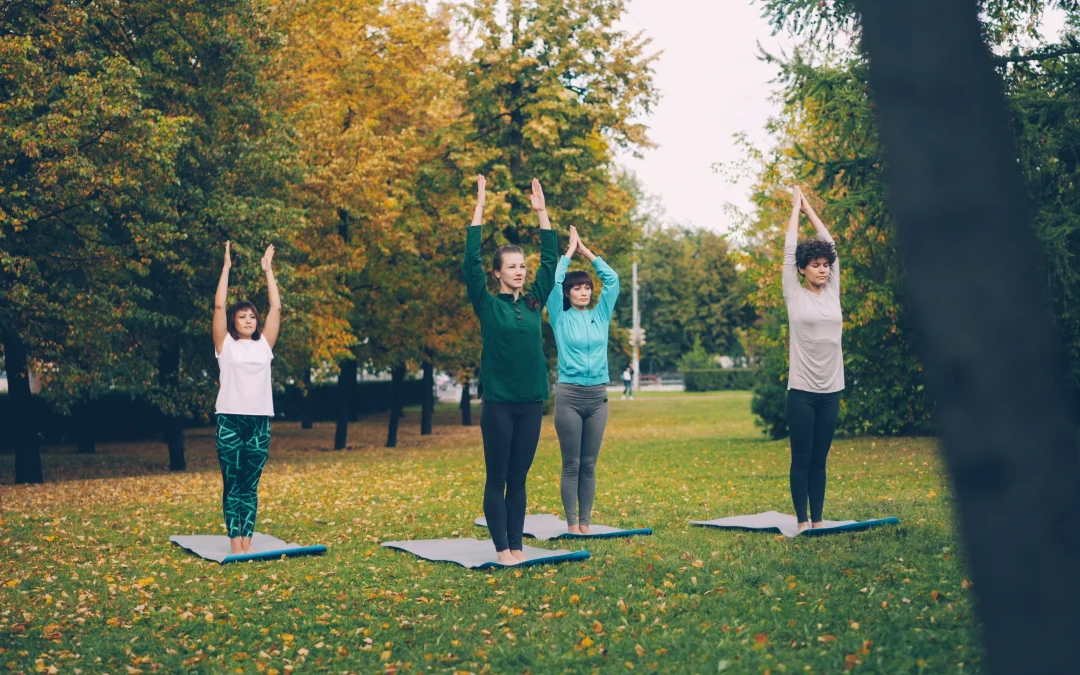“I don’t have the time.”
“I’m too tired.”
“I’ve tried everything, and nothing works.”
“I can’t do it perfectly, so what’s the point of trying?”
“I started off motivated, but now I just don’t feel like it.”
Sound familiar? These are just the tip of the iceberg when it comes to the reasons I hear from people about why they’re not taking care of themselves. And I get it. We lead busy lives, especially once we’re living out our vocations. Things only ramp up.
You’ll sometimes hear well-intentioned fitness influencers say things like, “Everyone has the same 24 hours in a day! No excuses!” And while it’s true that everyone technically has the same 24 hours, not everyone has the same priorities.
For example, I’m a husband and father of three (soon to be four). I also run a company called Hypuro Fit, where I oversee a team of coaches who help Catholics on their health journeys through the lens of Pope St. John Paul II’s Theology of the Body. Needless to say, I don’t have a ton of free time. While I do have 24 hours in a day, the way I spend those hours is going to look different than that of a 20-something influencer telling everyone they have no excuses not to work out and eat clean.
Even with my busy schedule my wife and I both make it a priority to pray every day and exercise 4-5 days a week. Our schedules didn’t magically allow for this, we can to work together to find a routine that works for us and our family.
Two Biggest Lies Of The Enemy
With that in mind, if I had to zoom in on the two biggest lies the enemy whispers to those striving to better their health for the sake of serving others and the Church, they would be some variation of these:
- “If you can’t do it perfectly, why bother? Just give up. It’s not working anyway, and it’s so hard. Focus on your job and family. You’ll have time later to exercise.”
- “You’re tired—just skip today. You don’t even like this anymore. You’re not motivated like you were when you started. This isn’t as exciting now, so let’s try something new instead.”
How Catholics Can Defeat Those Lies
Let’s tackle these one at a time.
1. Perfectionism: The Trap of “All or Nothing”
Before beginning any journey, whether spiritual or physical, it’s essential to examine yourself. This isn’t just my advice. Take it from a spiritual powerhouse, St. Teresa of Avila:
“Self-knowledge is so important that, even if you were raised right up to the heavens, I should like you never to relax your cultivation of it. So long as we are on this earth, nothing matters more to us than humility.”
If you’re someone prone to perfectionism, this first lie is likely one you’ve faced or will face. Don’t be surprised when it happens.
There will be seasons in life when you’re thriving at the gym and staying consistent with your nutrition. Life feels stable, and you’ve carved out the time to take care of yourself.
But there will also be seasons filled with work deadlines, sick kids, and holiday chaos. You’ll feel strapped for time, mentally taxed, and overstretched.
This is where a little exercise knowledge goes a long way.
You don’t need to work out every single day to be healthy.
Please don’t misunderstand. If you can move daily, that’s great. But it’s not necessary every week of the year.
A foundation of one to two days of resistance training and one to two days of light cardio is a solid start to general health.
Will that plan make you the next pro bodybuilder? No.
But it will make you a better version of yourself—someone striving for self-mastery for the sake of self-gift.
2. Feelings Are Unreliable: Discipline Over Emotion
The second lie is rooted in a dependency on feelings to do good. This one typically tempts those who are more sanguine in nature—people who ride emotional highs and lows on a weekly or even daily basis.
Here’s the truth:
No matter what virtue you’re trying to grow in, it won’t always feel good.
The warm fuzzies will fade. Even those who practice daily mental prayer experience dry spells—times when Scripture doesn’t resonate and the temptation to just roll over and go back to sleep is strong.
Exercise and nutrition are no different.
You may start out excited, but that motivation will eventually fade. That’s when you need a plan.
Don’t go into a week thinking you’ll just work out and eat well when you feel like it.
Go in with a schedule. Know what your goals are each day and do your best to stick to them.
Putting It All Together: A Rule of Life
Neither of these solutions is a magic bullet.
What I encourage you to do is create a general rule of life—a structure that empowers you to consistently pray and exercise. This rule should be flexible enough to accommodate life’s curveballs such as sick kids or unexpected meetings, but those should be seen as exceptions, not the rule.
There’s only so much we can cover in a short blog post. That’s why Dan Burke and I wrote our new book, The God of Endurance: A Practical Guide for Incorporating Exercise and Nutrition into Your Spiritual Journey.
In it, we dive deep into the theology behind our journey toward perfection (that is, becoming like Jesus) and why Catholics should prioritize both exercise and nutritional discipline. Not for vanity, but to learn how to conquer yourself so you can more fully give yourself.
Image: Photo by Carl Barcelo on Unsplash












